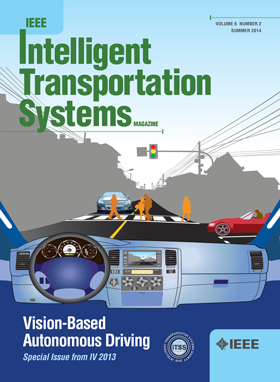CAN-Trace Attack: Exploit CAN Messages to Uncover Driving Trajectories
IF 7.9
1区 工程技术
Q1 ENGINEERING, CIVIL
IEEE Transactions on Intelligent Transportation Systems
Pub Date : 2025-01-30
DOI:10.1109/TITS.2025.3532455
引用次数: 0
Abstract
Driving trajectory data remains vulnerable to privacy breaches despite existing mitigation measures. Traditional methods for detecting driving trajectories typically rely on map-matching the path using Global Positioning System (GPS) data, which is susceptible to GPS data outage. This paper introduces CAN-Trace, a novel privacy attack mechanism that leverages Controller Area Network (CAN) messages to uncover driving trajectories, posing a significant risk to drivers’ long-term privacy. A new trajectory reconstruction algorithm is proposed to transform the CAN messages, specifically vehicle speed and accelerator pedal position, into weighted graphs accommodating various driving statuses. CAN-Trace identifies driving trajectories using graph-matching algorithms applied to the created graphs in comparison to road networks. We also design a new metric to evaluate matched candidates, which allows for potential data gaps and matching inaccuracies. Empirical validation under various real-world conditions, encompassing different vehicles and driving regions, demonstrates the efficacy of CAN-Trace: it achieves an attack success rate of up to 90.59% in the urban region, and 99.41% in the suburban region.求助全文
约1分钟内获得全文
求助全文
来源期刊

IEEE Transactions on Intelligent Transportation Systems
工程技术-工程:电子与电气
CiteScore
14.80
自引率
12.90%
发文量
1872
审稿时长
7.5 months
期刊介绍:
The theoretical, experimental and operational aspects of electrical and electronics engineering and information technologies as applied to Intelligent Transportation Systems (ITS). Intelligent Transportation Systems are defined as those systems utilizing synergistic technologies and systems engineering concepts to develop and improve transportation systems of all kinds. The scope of this interdisciplinary activity includes the promotion, consolidation and coordination of ITS technical activities among IEEE entities, and providing a focus for cooperative activities, both internally and externally.
 求助内容:
求助内容: 应助结果提醒方式:
应助结果提醒方式:


